True Resilience
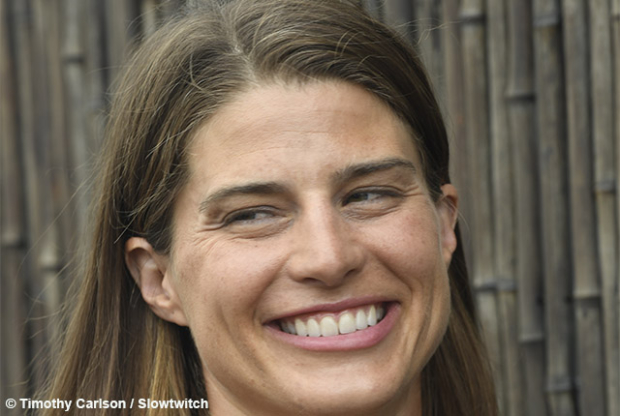
Sarah True and her sister Lauren Goff are very talented women in very different fields.
Sarah is a triathlete who seven years ago was engaged in a four-woman duel to the finish at the London Olympic Triathlon. With just a few yards to go, she faded behind the medalists Nicola Spirig, Lisa Norden and Erin Densham. Some say that fourth is the cruelest placing at the Olympics, but Sarah had the strength of mind and heart to look at it with a positive frame. Now she has made the transition to be a contender at long distance championships like Frankfurt and Kona.
Lauren Groff is a writer of novels and short stories, a winner of international prizes for her novel Fates and Furies and her short story collection Florida. She is a regular contributor to The New Yorker. Her works display a fiercely unique style that treads a fine line between magical thinking and heartbreaking realism.
Both are passionate fans of one another. They see how different they are – and the similarities.
“Absolutely there are traits we share,” said True after a pre-race media conference on a cloudy day at Kailua Bay. “You have to be a self-starter. You have to be motivated and self- disciplined. And something I really got reinforced this year: you can’t get too attached. I can’t get too attached to a previous race; in my sister’s case, to a previous book. Things you produce. You have to quickly move on. Learn from what you’ve done historically. And just try to get better.”
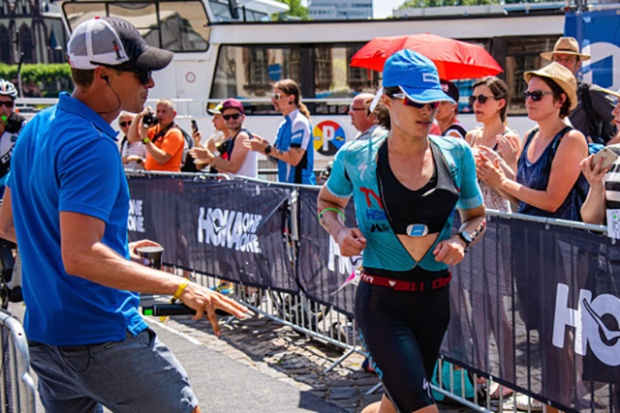
Sarah True is referring to her traumatic meltdown at the Ironman European Championship in Frankfurt. She had a 7-minute lead with a kilometer to go but collapsed in the heat and could not finish. Determined to find a medical cause, she embarked on a battery of blood work and medical tests that drew a blank.
“We took a look at things with analytical process,” said Sarah, who opined that her out of normal response indicated something more than heat exhaustion. “We were able to do the relevant medical tests and be very systematic about how we approached what went wrong. And basically the answer is that I have not benefited from this examination because this is something we do not have a handle on. It is a medical issue which is not something as simple as I would like.”
This episode was a frustrating puzzle because True was on a hard-won struggle to solve the Ironman question. She showed she was on the right track in 2018 when she finished second at the prestigious Ironman Frankfurt in a time of 9:05:19 with a race-best 2:54:45 marathon, outrunning Daniela Ryf. Discouragingly, her 5:10:56 bike split was 30 minutes slower than Ryf.
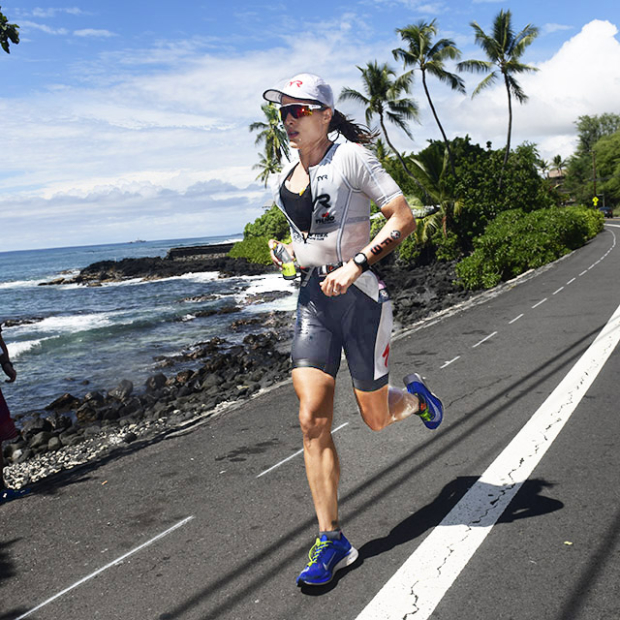
Last year in her Kona debut, True might have derived even more encouragement from her 4th place finish against the best field in the world. She combined a 52:04 swim, a 4:49:19 bike split and a third-best 2:57:58 marathon to finish in 8:43:32. Discouragers? Her bike was 23 minutes off Ryf and overall time was 17 minutes off Ryf’s record-setting mark. Encouragers? She was progressing fast and held high hopes that her bike strength could offer rich ground for improvement.
In the aftermath of this year’s Frankfurt, True’s sister offered some encouragement. “She has always admired my resilience,” which Sarah says they share. “I think for her it is a mental and emotional resilience. For me it is it is an emotional and physical resilience. It is both similar and very different.”
With Sarah facing her greatest test of that resilience, Lauren put it this way: “Her recommendation to me post-Frankfurt was really hard for me,” said Sarah. “The recommendation was to control my own narrative.”
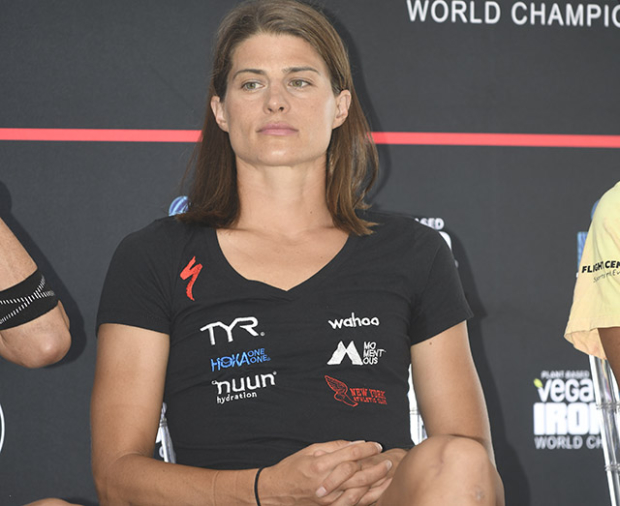
How would she do that? “Controlling my narrative is to accept: being here is a choice that I can be cognizant of the things that have happened. It is a focus on what empowers me in the sport. A focus on the positives. I get to choose how I view my own place in the sport. How I want to be perceived.“
This gives Sarah an existential choice that takes her far away from self-pity and toward a profound understanding of Ironman’s challenging reality. “I think one of the greatest joys of moving from ITU in the sport is the realization that in long course we have a greater connecting with our community. It sounds like a cliché. Being my authentic self and embracing my voice has been really quite helpful to other people. I wouldn’t have realized that in the really insular world of ITU. It is only when you enter long course racing that I find it.”
Is long course training and racing lonely?
“Absolutely, I am all in 100 percent. I train alone. You have to be face-to-face with your greatest fears. Your greatest uncertainties. And how you choose to handle than says everything about you.”
Does she now prefer Ironman racing?
“I look at them differently,” says Sarah. “We had such a tight knit group in ITU. I miss that. I miss training partners. I miss seeing the same people week in and week out with the racing. I miss the format of racing. But on the other hand, I enjoy the fact I can train for this alone and I can spend more time at home [with husband Ben True, an internationally- ranked 5,000-meter runner]. “The downside is when you race less frequently, if something goes wrong, that is six weeks gone. The stakes are really high in long course.”
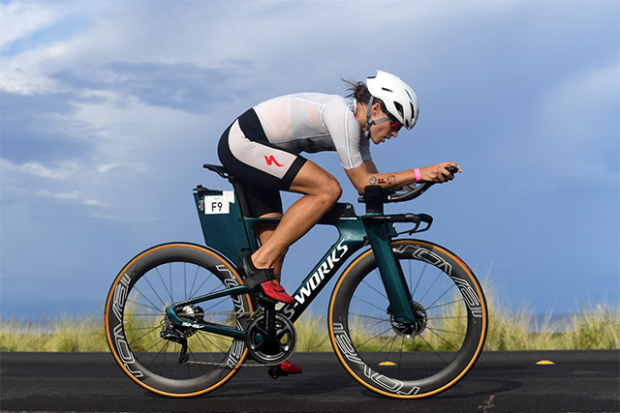
She adds: “Yeah I’ve loved both. I feel really grateful I’ve been able to be successful enough to be able to transition.”
So when you cannot find the medical cause of your collapse in Frankfurt, how do you continue in the face of the unknown?
“Ultimately racing is, at its essence, uncertainty,” True said at a pre-race press conference. “I am going into this race with a new level of uncertainty. At Frankfurt the outcome was not what I would have expected. But I embrace that. Much like my first time at Kona last year carried its own level of uncertainty. Because it was a new experience. This year’s Kona is a different layer of uncertainty. Because I don’t know frankly how my body will respond.”
It would be a mistake to consider Lauren Groff’s work to be solely in the mind.
True says that she and her sister share a kind of mental and physical endurance in their work. “For every page she writes, 10-20 pages get rejected,” says Sarah.
That can be easy on a computer?
“No. She writes everything longhand. So it’s a very physical process. She will have pages of her manuscripts all over. She will tack the pages up on the wall and move them around.”


Start the discussion at slowtwitch.northend.network